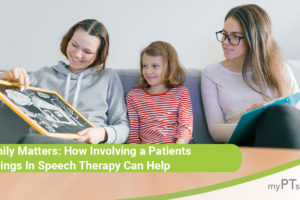Regardless of your career goals, there are numerous specialty options available for you to pursue. It might be working with children, treating fluency disorders, swallowing problems, or voice treatment. Let us look at seven certifications, their requirements, and the steps you can take to reach your speech pathology career goals.
Seven Certifications That Can Help You Advance Your Speech Pathology Career
Certification of Clinical Competence in Speech-Language Pathology (CCC-SLP)
One of the most valuable certifications is the CCC-SLP offered through the American Speech-Language-Hearing Association (ASHA). This initial certification is commonly a requirement for becoming a licensed and registered SLP in your state. The conditions for the certification include obtaining a master’s degree in SLP, completing a post-graduate fellowship and submitting appropriate documents. Continuing education for license renewal is also a requirement.
Board-Certified Specialist Certification (BCS)
BCS is the preliminary licensure for speech pathologists who specialize in a specific field of speech pathology. These specialties include fluency disorders, swallowing disorders, and audiology. Upon completing graduate school and passing the exam, you can obtain a BCS certification by specializing in a clinical specialty.
Child Language and Language Disorders Certification (BCS-CL)
A BCS-CL certification allows SLPs to work with children who have language development issues. This certification is among the specialty licenses offered through the American Board of Child Language and Language Disorders. Requirements include possession of the initial CCC-SLP certification and experience working with child language disorders.
Board-Certified Specialist in Fluency and Fluency Disorders Certification (BCS-F)
The American Board of Fluency and Fluency Disorders offers this certification for SLPs who choose to specialize in this field. The certification enables an SLP to work with adults and children who have speech disorders related to fluency, stuttering, lisps, and other fluency disorders. Qualification for the certification includes passage of your initial CCC-SLP licensure exam and your state’s educational and clinical fellowship requirements.
Board-Certified Specialist in Swallowing and Swallowing Disorders (BCS-S)
If you are interested in swallowing disorders, the BCS-S will allow you to work with patients who have swallowing disorders. These SLPs typically work in pediatrics and with adults who may have difficulty swallowing due to injury, trauma or other medical issues.
Lee Silverman Voice Treatment (LSVT) Certification
The LSVT certification is available for SLPS who wish to treat patients with Parkinson’s disease. Treatment includes improving vocal expression, articulation, swallowing, neural and muscular functioning. These SLPs may also treat speech impairments due to strokes, Down’s syndrome, cerebral palsy, and multiple sclerosis. Requirements include completion of a graduate degree and a CCC-SLP certification.
Prompts for Restructuring Oral Muscular Phonetic Targets (PROMPT) Certification
The PROMPT certification offers licensure to SLPs who utilize this approach in their practice. SLPs who are PROMPT certified work with clients to expand and improve their motor skills, speech, and communication production by integrating words and phrases that focus on enunciation, pronunciation, and articulation. Certification involves a minimum of five years experience, attendance of workshops, completion of practicums, and a project.
Looking for a Great Way to Advance Your Speech-Language Pathologist Career? We Can Help!
An excellent way to advance your SLP career is by working with myPTsolutions. Let the professionals at myPTsolutions help you find your next job in speech pathology.




